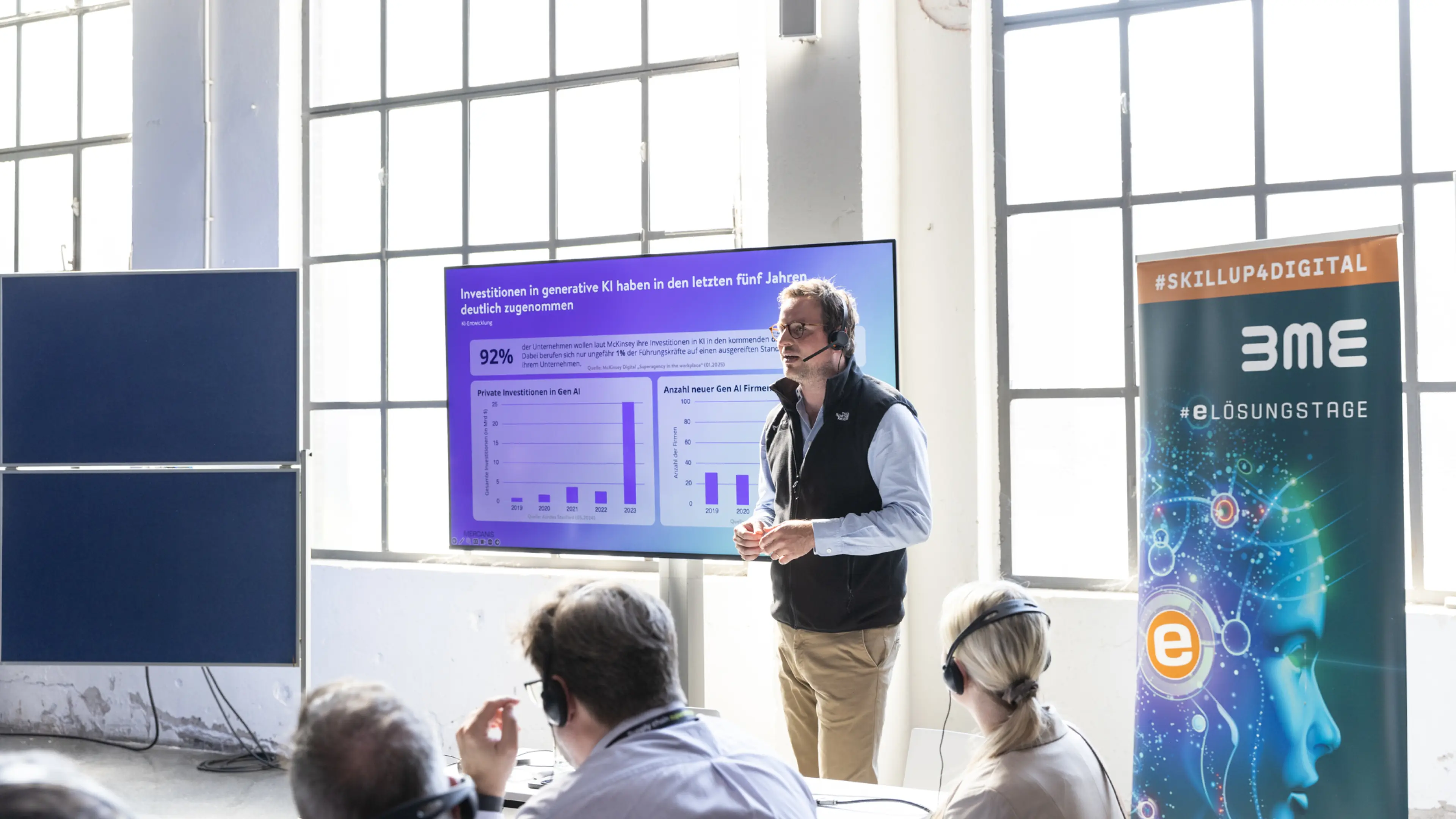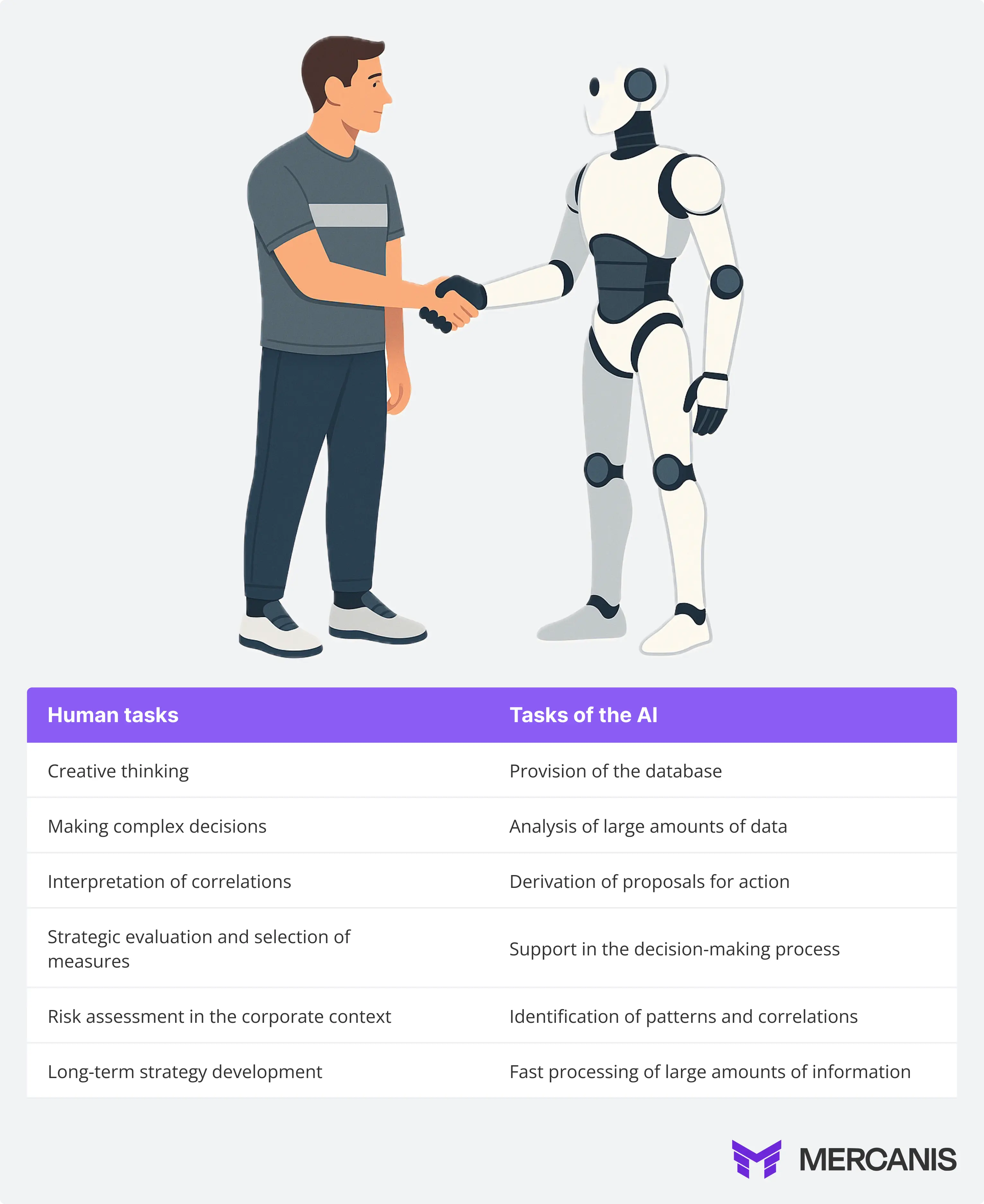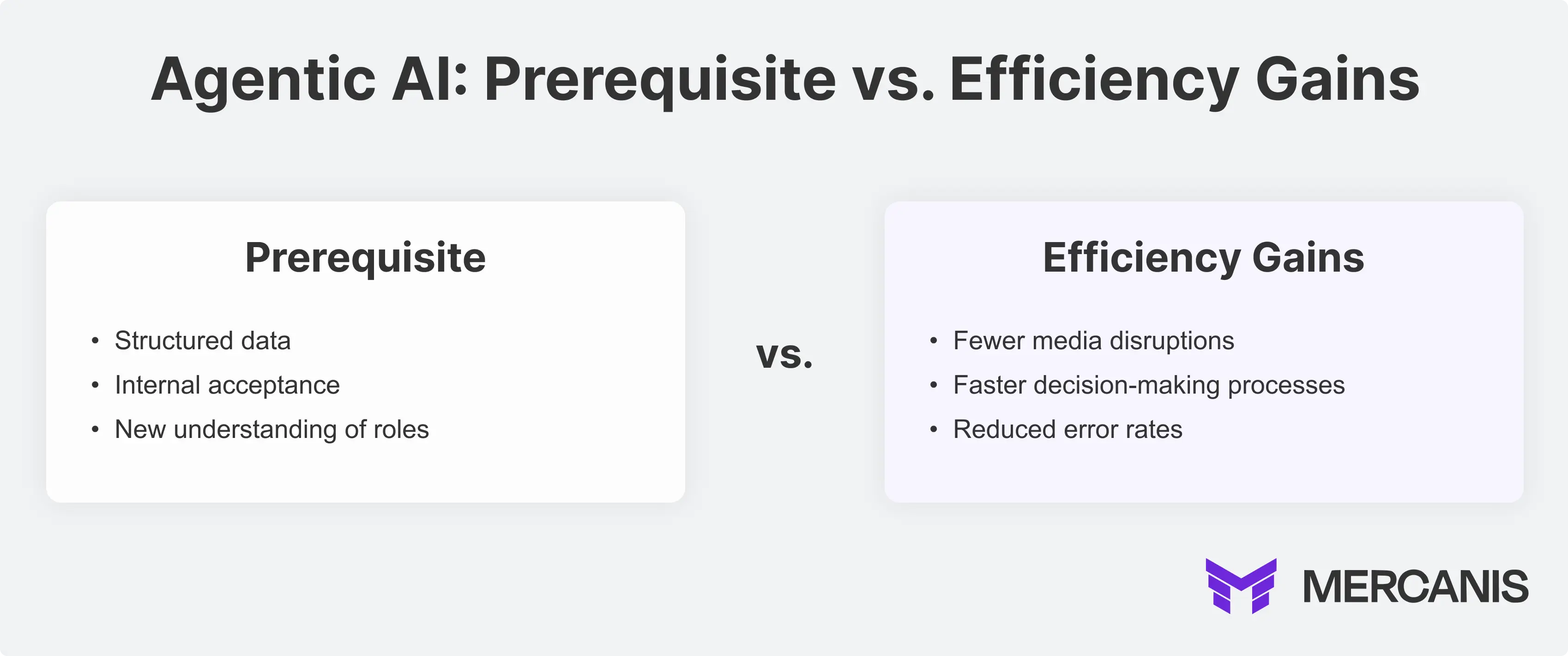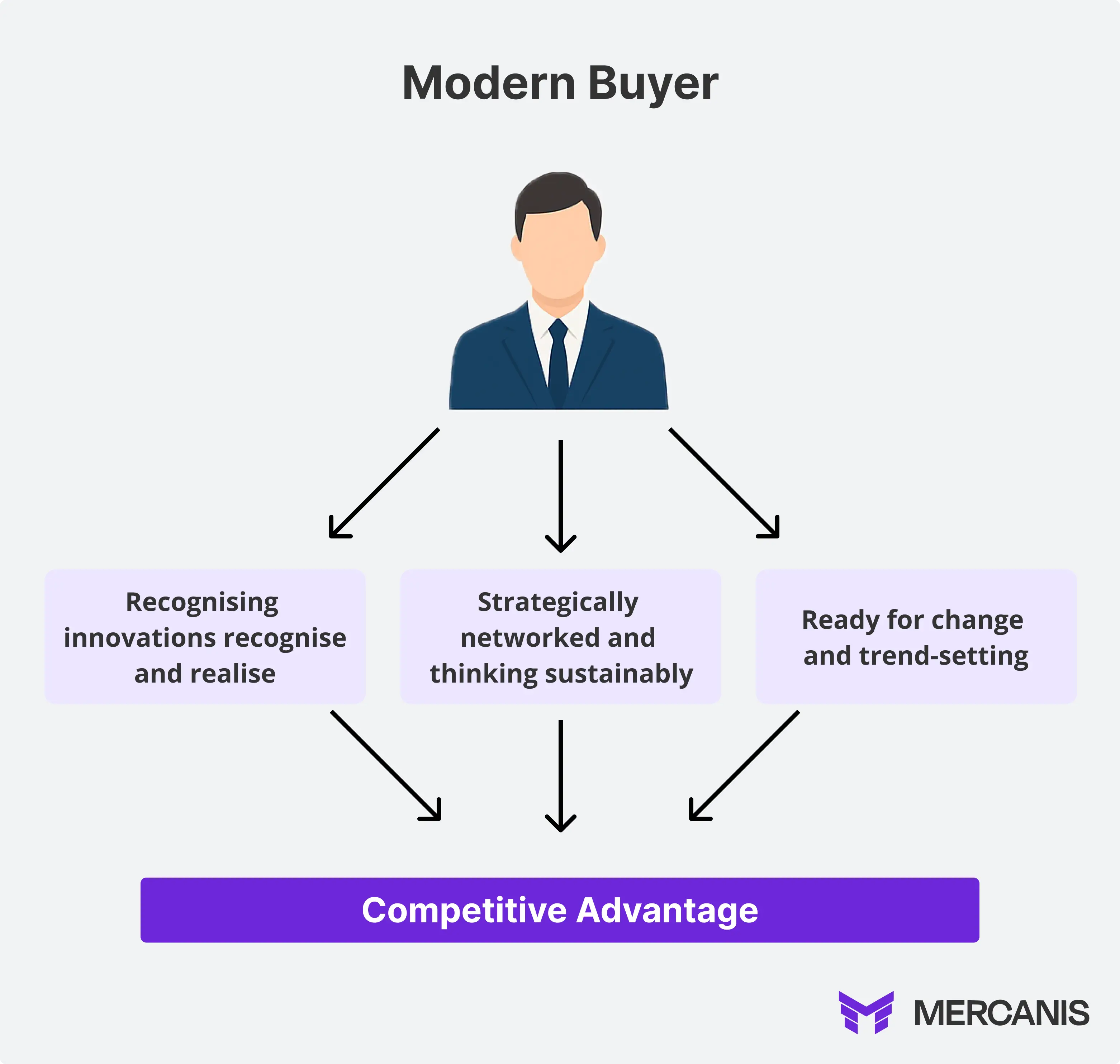Free Masterclass | The 10x Buyer: How to Make Your Procurement Team 10x More Productive with 55 AI Agents
Register now
- SolutionsOn Demand
- ExploreLearn
- Customers
- For Suppliers

On May 13 and 14, 2025, around 1,000 specialists and managers came together in Düsseldorf for the BME eLÖSUNGSTAGEN 2025. Under the guiding theme of "AI and digitalization in procurement", the event offered a platform for exchanging views on current developments, strategic impulses and concrete application examples relating to digital procurement.
The two-day event featured a diverse program with over 60 formats. Keynotes, specialist forums, workshops and round tables provided insights into key topics such as automation, the use of artificial intelligence, sustainable procurement strategies, eProcurement platforms and solutions that are specifically tailored to the needs of SMEs. Renowned experts shared their experiences and provided practical impetus for the successful implementation of digital procurement strategies.
The event program was complemented by an accompanying trade fair at which around 100 partner companies presented their innovative eProcurement solutions. Digital tools that simplify processes, optimize interfaces and create strategic added value for purchasing departments were particularly in demand.
Workshops and discussion rounds focused on the transfer into practice. The participants discussed how digital strategies can be effectively implemented in their own company and what role data, systems and people play in this change.
This article summarizes the most important trends and impulses from Düsseldorf - practical, opinionated and with a view to the strategic direction of procurement in 2025 and beyond.
In his opening speech, Dr. Lars Kleeberg, Managing Director of the BME, made it clear that artificial intelligence in procurement is no longer a topic of the future, but has long been on the agenda of the present.
He emphasized the urgent need for action:
The keynote speeches, which did not focus on the question of whether AI can replace humans, but rather how it can usefully complement them, showed what this potential can look like in concrete terms. After all, AI is already performing impressively, particularly in data-intensive areas such as the evaluation of large amounts of supplier data or the optimization of procurement processes. It analyses faster, recognizes patterns more efficiently and relieves teams of repetitive tasks.
Clearly defined areas of responsibility for humans and AI in purchasing can be derived from this:

Agentic AI was without question one of the most discussed topics at the eLÖSUNGSTAGE. In Düsseldorf, what previously only sounded like dreams of the future became tangible: autonomously acting AI agents that not only support purchasing processes, but actively carry them out - from requirements to supplier communication.
This is not about simple chatbots, but about adaptive systems that prepare decisions or even make them themselves.

Sustainability is no longer an add-on - ESG criteria and legal requirements such as the Supply Chain Sustainability Act (LkSG) are shaping the purchasing strategies of many companies today.
In several panels and workshops, participants discussed how compliance requirements can be implemented in concrete terms - from supplier evaluation to documentation. Among other things, platforms were presented that proactively identify ESG risks, automatically evaluate questionnaires and serve as an early warning system. The role of supplier databases with sustainability profiles was also highlighted.
Deepening:
Blog article: on compliance and LkSG as well as ESG requirements
Blog article: Sustainable procurement
Digital solutions only develop their added value if systems, data flows and participants are seamlessly linked. You therefore need end-to-end platforms, end-to-end digital systems that combine all steps from demand to payment in one platform.
Your advantages:
Anyone who wants to successfully implement digital purchasing processes must therefore rely on networking instead of isolated solutions.
The digital transformation in procurement is much more than a technological upgrade - it is above all a cultural change. This became impressively clear at the eLÖSUNGSTAGEN 2025. New technologies alone are not enough to bring about real change. Rather, targeted further training, new role models and an interdisciplinary mindset are crucial to success. Data competence is becoming a key qualification, as are strategic supplier management and agile project work. Purchasing is in a state of upheaval: moving away from a purely administrative function to an active, strategic value driver within the company.

The modern buyer is much more than an operational procurer: they recognize relevant innovations at an early stage, integrate them strategically into existing processes and think company-wide - with a focus on sustainability, resilience and ESG. As a driver of cultural change, it repositions procurement and develops it into a strategic partner. This requires not only technological tools, but also the will to question existing structures, expand skills and see change as an opportunity. This is the only way to make procurement fit for the future.
The eLÖSUNGSTAGE 2025 showed impressively: Procurement is at a turning point. Technologies such as agentic AI, automated invoice processing and ESG monitoring have long been a reality - now it's time to break down silos, intelligently network systems and actively involve employees in the transformation. But the transformation does not end here: Technological and cultural change in procurement is an ongoing process that requires constant development and information. If you want to remain competitive in the long term, you need to keep your finger on the pulse - for example at the next BME eLÖSUNGSTAGEN on May 19 and 20, 2026 in Düsseldorf.











Fabian Heinrich is the CEO and co-founder of Mercanis. Previously he co-founded and grew the procurement company Scoutbee to become a global market leader in scouting with offices in Europe and the USA and serving clients like Siemens, Audi, Unilever. With a Bachelor's degree and a Master's in Accounting and Finance from the University of St. Gallen, his career spans roles at Deloitte and Rocket Internet SE.